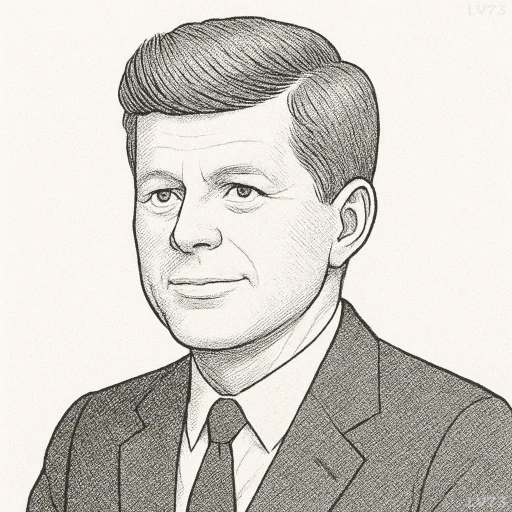“Unconditional war can no longer lead to unconditional victory. It can no longer serve to settle disputes… can no longer be of concern to great powers alone.”

- May 29, 1917 – November 22, 1963
- American
- Politician
table of contents
Quote
“Unconditional war can no longer lead to unconditional victory. It can no longer serve to settle disputes… can no longer be of concern to great powers alone.”
Explanation
In this statement, John F. Kennedy addresses the evolving nature of warfare in the modern age. He argues that the traditional concept of unconditional war, in which one side sought to defeat the other completely and decisively, is no longer feasible or desirable in a world armed with nuclear weapons and modern technology. Kennedy is highlighting the fact that total war, which had once been the norm in earlier historical conflicts, now carries with it the threat of mutual annihilation—especially with the advent of nuclear weapons that could obliterate entire civilizations. The idea that war could serve as a means to resolve conflicts without devastating consequences is no longer viable. Kennedy is acknowledging that the stakes of modern conflict have grown so high that unconditional victories are no longer possible without risking total destruction.
Kennedy’s words were spoken at a time when the world was at the height of the Cold War, and both the United States and the Soviet Union were armed with nuclear weapons capable of causing global catastrophe. The Cuban Missile Crisis of 1962 had brought the world to the brink of nuclear war, and Kennedy was acutely aware that the existence of weapons of mass destruction had fundamentally changed the nature of global conflict. In this context, Kennedy was advocating for diplomacy, negotiation, and international cooperation as the primary means of settling disputes between nations, especially among the great powers. He recognized that the old models of war, with clear winners and losers, were no longer applicable when the potential for destruction was so immense. Instead, peaceful resolutions and conflict prevention had to become the priority.
Kennedy’s statement continues to be relevant in the modern world, where global conflicts—though still fought with conventional weapons—are often shaped by the threat of nuclear war, cyber warfare, and the potential for proxy conflicts. The idea that war is no longer a viable means of resolving disputes between great powers is especially pertinent in today’s world, where the risks of escalation and global destruction are ever-present. In recent decades, the emphasis has shifted toward international diplomacy, arms control agreements, and multilateral organizations like the United Nations to address disputes before they turn into full-blown wars. Kennedy’s words remind us that, in the age of nuclear weapons and global interconnectivity, the stakes of conflict are too high to rely on traditional notions of war and victory. Instead, nations must focus on building peaceful solutions, fostering cooperation, and understanding the global consequences of their actions.
Would you like to share your impressions or related stories about this quote in the comments section?



